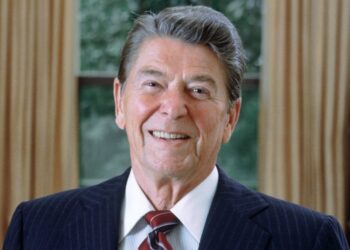Leadership is a complex art that goes beyond holding a position of authority or managing a team. It is about inspiring, influencing, and guiding individuals or organizations toward achieving goals while fostering personal and collective growth. History provides many examples of great leaders who have shaped the world, from political figures and military strategists to business icons and social activists. What unites all these leaders, however different their contexts may be, is a set of core virtues that define their greatness.
1. Integrity
Integrity refers to adherence to moral and ethical principles, honesty, and truthfulness in actions and words. Leaders with integrity are trustworthy and reliable. They gain the respect of their followers by consistently doing what is right, even when it is difficult or when no one is watching. When leaders act with integrity, they set an example for others, creating a culture of accountability and transparency.
Examples in practice
- Nelson Mandela demonstrated integrity by staying true to his principles of equality and justice, even after being imprisoned for 27 years.
- In business, Warren Buffet is often cited as a leader of high integrity, emphasizing long-term value over short-term gains and treating his stakeholders with honesty.
Application
Integrity in leadership involves:
- Keeping promises and following through on commitments.
- Being transparent in decision-making processes.
- Admitting mistakes and taking responsibility for them.
2. Empathy
Empathy is the ability to understand and share the feelings of another person, to see the world from their perspective. Empathetic leaders build strong, meaningful relationships with their team members. They understand their employees’ needs, concerns, and aspirations, which helps in creating a supportive environment. This emotional intelligence allows leaders to navigate difficult conversations, resolve conflicts, and boost morale.
Examples in practice
- Jacinda Ardern, the former Prime Minister of New Zealand, was praised for her empathetic leadership style, particularly during the Christchurch mosque shootings. Her response was characterized by compassion and understanding.
- Howard Schultz, former CEO of Starbucks, is another example, as he implemented policies that prioritize employee welfare, including healthcare and educational support.
Application
Empathy in leadership can be fostered by:
- Active listening without interrupting or making assumptions.
- Demonstrating genuine concern for employees’ well-being.
- Adapting management styles to meet the emotional needs of team members.
3. Courage
Courage in leadership is the ability to face fear, uncertainty, and challenges head-on while remaining steadfast in one’s values. Great leaders must often make tough decisions that carry significant risks. Whether it’s standing up for what’s right, making a difficult choice, or facing opposition, courage is essential. Courageous leaders inspire confidence and push boundaries, driving innovation and progress.
Examples in practice
- Martin Luther King Jr. exemplified courage in his relentless pursuit of civil rights in the face of violent opposition and personal threats.
- Sheryl Sandberg, COO of Facebook, showed courage when she advocated for women in leadership and shared her personal experiences with vulnerability and loss in her book Option B.
Application
Leaders can demonstrate courage by:
- Taking calculated risks for long-term gains rather than opting for safer, short-term solutions.
- Defending their team and principles against external criticism or pressure.
- Leading change, even in the face of opposition.
4. Humility
Humility is the quality of being humble, down-to-earth, and respectful of others’ contributions and ideas. Humility enables leaders to recognize that they do not have all the answers. It fosters collaboration, encourages learning, and creates a culture where everyone’s input is valued. Humble leaders are more open to feedback and can admit when they are wrong, which strengthens trust among their teams.
Examples in practice
Satya Nadella, the CEO of Microsoft, has been noted for his humility. He transformed Microsoft’s internal culture to one of openness and learning, steering the company away from a competitive, ego-driven atmosphere.
Pope Francis is another leader known for his humility, choosing to live simply and consistently advocating for the marginalized.
Application
Humble leadership involves:
- Giving credit to others and acknowledging their contributions.
- Continuously seeking to learn and improve.
- Accepting constructive criticism gracefully and acting upon it.
5. Vision
Vision is the ability to see beyond the present, to imagine future possibilities, and to articulate a clear, inspiring direction for others to follow. Visionary leaders can anticipate changes in their environment and proactively navigate their organizations or movements toward a desired future. They inspire others by providing a sense of purpose and direction. A strong vision can unify and motivate a team to work toward long-term goals.
Examples in practice
Elon Musk exemplifies visionary leadership with his ambition to colonize Mars and revolutionize industries like transportation and energy.
Mahatma Gandhi’s vision for an independent India, achieved through nonviolent resistance, united millions of people and changed the course of history.
Application
Visionary leaders can:
- Articulate a clear and compelling long-term objective.
- Communicate the vision effectively to inspire buy-in from the team.
- Adapt their vision to evolving circumstances without losing sight of their overarching goals.
6. Decisiveness
Decisiveness is the ability to make timely, clear, and firm decisions, even in the face of uncertainty or pressure. Leaders are often required to make quick decisions with limited information. Indecisiveness can lead to missed opportunities, confusion, or loss of confidence among team members. Decisive leaders, however, instill confidence and maintain momentum, steering their organizations effectively through challenges.
Examples in practice
- Dwight D. Eisenhower, during his time as Supreme Commander of the Allied Forces in World War II, demonstrated exceptional decisiveness in orchestrating D-Day, one of the most pivotal operations of the war.
- Jeff Bezos of Amazon is known for his “two-way door” decision-making process, where decisions can be reversed if needed, but made swiftly to maintain innovation.
Application
Decisive leadership involves:
- Evaluating available information quickly and making informed decisions.
- Standing by decisions with confidence, while being open to adapting if new information arises.
- Delegating decision-making when appropriate to empower others.
7. Resilience
Resilience is the ability to recover from setbacks, adapt to change, and keep moving forward despite adversity. Every leader will face obstacles, failures, and criticisms during their career. Resilient leaders can bounce back from these challenges, maintaining their focus and determination. They also model this quality for their teams, encouraging perseverance in the face of difficulties.
Examples in practice
- Steve Jobs faced significant setbacks, including being ousted from Apple, the company he co-founded. Yet, he returned to lead Apple to unprecedented success.
- Winston Churchill showed remarkable resilience during World War II, helping to lead Britain through its darkest days with unwavering determination.
Application
To build resilience, leaders can:
- Develop a mindset focused on learning from failure rather than avoiding it.
- Maintain a long-term perspective during crises or downturns.
- Support their team emotionally and mentally during difficult times.
8. Self-awareness
Self-awareness is the conscious knowledge of one’s own character, feelings, motives, and desires. It includes an understanding of how one’s behavior affects others. Great leaders are in tune with their strengths and weaknesses. This self-awareness enables them to leverage their strengths effectively while seeking help in areas where they need improvement. It also fosters emotional intelligence, allowing leaders to manage their own emotions and understand how they impact their teams.
Examples in practice
- Oprah Winfrey is often cited as a leader with high self-awareness, having openly discussed her personal growth journey and her understanding of how her life experiences shaped her leadership.
- Bill Gates has acknowledged the importance of self-awareness in leadership, particularly in understanding one’s limitations and delegating to those with complementary skills.
Application
Leaders can cultivate self-awareness by:
- Regularly reflecting on their actions and decisions.
- Seeking feedback from peers, mentors, and employees.
- Practicing mindfulness and emotional regulation.
Conclusion
Great leadership is not defined by one single characteristic but by a combination of virtues that work together to inspire, motivate, and guide others. Integrity, empathy, courage, humility, vision, decisiveness, resilience, and self-awareness are just a few of the many virtues that make leaders truly great. By cultivating these qualities, leaders can create environments of trust, innovation, and success, leaving lasting legacies that extend far beyond their tenure. In a world that constantly evolves, the need for virtuous leadership has never been greater. Leaders who embody these virtues can not only navigate the challenges of today but also shape the future for the better.


































































































































































































